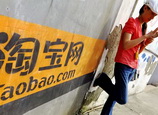
Analysts agreed that when China loses the competitiveness of low labor cost, China should depend on technological innovation, human capital accumulation and IPR protection to ease the pressure of rising costs. China should steadily shift away from cheap assembly lines to high value-added production, from “made in China” to “innovate in China.”
Ha Jiming, vice chairman and chief investment strategist of Goldman Sach's investment management division for China, held that from the long-term point of view, reform and opening up is the biggest dividend China has. “To achieve that, China should enhance productivity, reform income distribution system, facilitate growth in low-income regions and develop service industry,” Ha emphasized.
Angel Gurria, Secretary-General of the OECD, suggested that China accommodates a process "where there is a structural transformation of the productive model." The model is "increasingly moving towards knowledge and less towards labor and accommodating millions of those who will have much higher and better skills and will be producing more high value-added products than simply producing labor," Gurria added.
Lian Ping, Shanghai-based chief economist for the Bank of Communications, said it was "truly important" to transform the growth model.
"We want to see economic growth more steady instead of more rapid, so as to alleviate pressure on the environment and resources."
 |  |
















![]()
